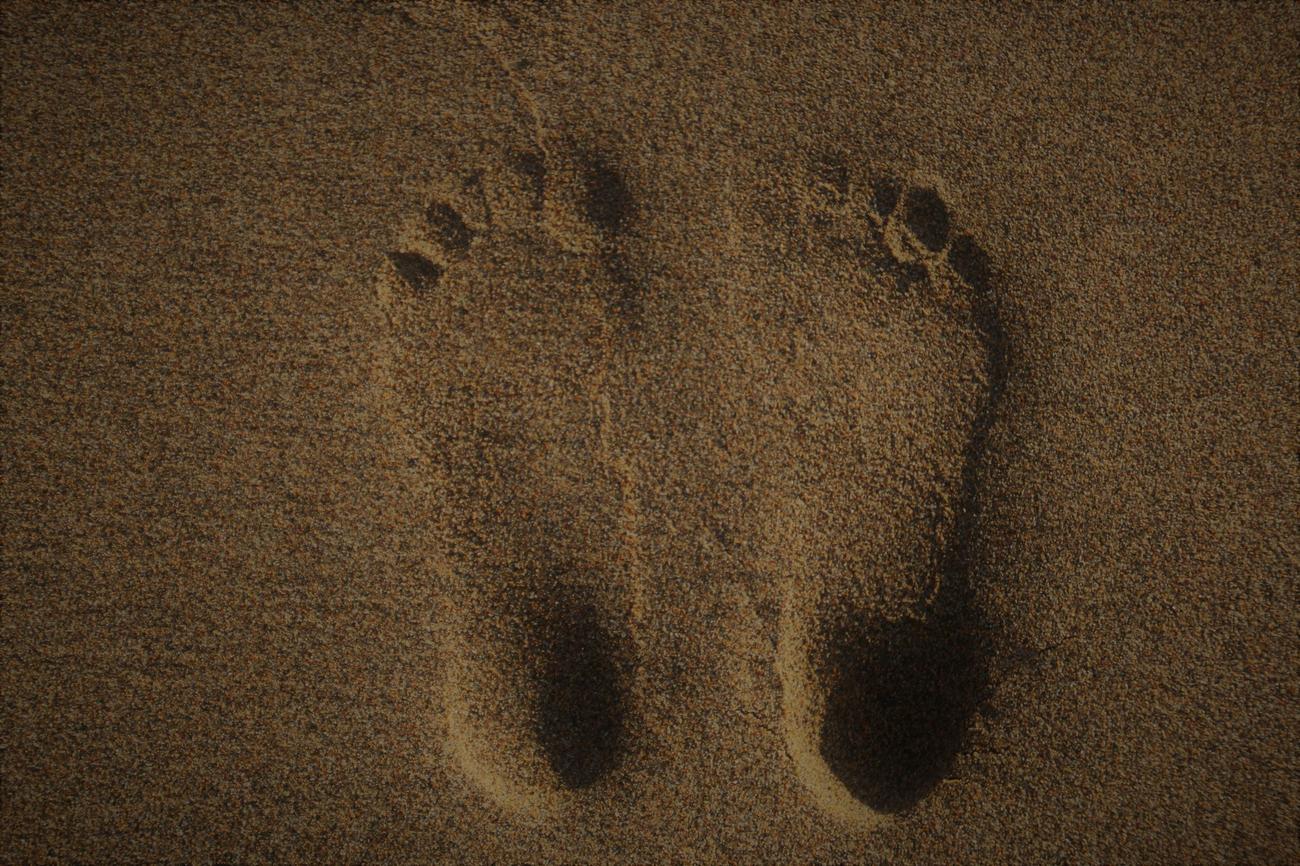Prepare to be amazed as we embark on a journey into the fascinating world of feet! In this article, we will delve into the depths of our soles, unraveling captivating facts that often go unnoticed. As an experienced podiatrist with a passion for foot health, I have spent over a decade exploring the intricacies of the human foot. From the structural marvels that make up our foundation to the surprising functionality hidden within, I am excited to share with you a plethora of amazing facts about feet. So sit back, relax, and prepare to have your understanding of this vital part of our body elevated to new heights!

Amazing Facts About Feet – Unveiling the Wonders of Our Soles
Feet, those unsung heroes of our bodies, often go unnoticed and underappreciated. But did you know that they are brimming with fascinating facts that can leave you in awe? From the structural marvels of our foot bones to their surprising functionality, let’s dive into the captivating world of our soles and uncover some amazing facts about feet.
Did you know that nearly a quarter of all the bones in our bodies are in our feet? Yes, that’s right! Our feet are homes to a staggering 52 bones, which is quite remarkable considering there are 206 bones in our entire skeletal system. This intricate web of bones provides the foundation for our body’s movement, balance, and stability.
In addition to bones, our feet are home to a complex network of joints, muscles, tendons, and ligaments. There are 26 bones in each foot, along with 33 joints, 19 muscles and tendons, and 107 ligaments to hold everything together. It’s no wonder that our feet are capable of supporting our weight and performing various movements with such grace and precision.
Have you ever wondered what would happen if you lost your thumb? Well, here’s a mind-boggling fact: you can actually have your thumb replaced with your big toe through surgery! Our big toe shares many similarities with our thumb, making it a viable substitute if the need arises. It’s truly remarkable how our bodies adapt and find solutions to challenges when necessary.
Shifting our focus to the history of footwear, shoes have been an integral part of human culture for thousands of years. From ancient civilizations to modern fashion trends, shoes have been worn to protect our feet, enhance aesthetics, and reflect social status. The evolution of shoes is a testament to human creativity and ingenuity.
But did you know that our big toe used to serve as a grasping toe, similar to a thumb? Picture this: our early ancestors, as they walked on all fours, relied on their feet for both walking and grabbing objects. As our species evolved into bipedal beings, our feet underwent structural changes, and the big toe moved into its current alignment. This adaptation enabled us to become proficient walkers and laid the foundation for human mobility as we know it today.
In a unique and quirky turn of events, there was even a foot cheese exhibition in Ireland. Yes, you read that right! But don’t worry, it wasn’t real cheese made from feet. This unusual exhibition showcased artistic creations that resembled various types of cheeses, all inspired by the contours and textures of people’s feet. It’s a testament to the creativity and imagination that feet can inspire!
While we’re on the topic of feet, let’s talk about sweat glands. Did you know that feet contain approximately 250,000 sweat glands? That’s more than any other part of the body. This abundance of sweat glands helps regulate our body temperature and maintain optimal foot health. However, it often leads to sweaty feet, which can be uncomfortable and contribute to foot odor. So, make sure to choose breathable footwear and practice good foot hygiene to keep those sweaty moments at bay.
Speaking of foot health, the alignment of our feet plays a crucial role in our overall balance and proprioception. Well-aligned feet have toes that point straight ahead when walking, allowing for efficient weight distribution and proper alignment of the lower body. If your feet are misaligned, it can lead to various issues such as ankle instability, knee pain, and even back problems. So, it’s essential to pay attention to the alignment of your feet and seek professional advice if needed.
Next time you accidentally stub your big toe, you’ll know why it causes so much pain! Feet have about 8,000 nerves per square centimeter, the highest concentration in the body, making them extremely sensitive to touch and pressure. This high nerve density allows us to have exquisite control over our foot movements but also means that even the slightest impact can trigger a strong pain response. So, be mindful of where you’re stepping and avoid those painful encounters with furniture or door frames!
Ever wondered how much sweat your feet produce in a day? Brace yourself for this astonishing fact: our feet can produce up to half a pint of perspiration each day! That’s quite a substantial amount for such a small area. This perspiration serves an important purpose in regulating our body temperature and keeping our feet moisturized. However, excessive sweating can lead to discomfort and increase the risk of fungal infections. So, don’t forget to wear moisture-wicking socks and choose breathable footwear to keep your feet dry and happy.
Let’s take a moment to appreciate the remarkable journey of our foot bones. The majority of foot bones fully mature by the age of 21, marking the completion of a series of complex processes that shape our feet since birth. These processes involve the fusion and growth of various bones, ensuring that our feet develop the necessary strength and stability to support us throughout our lives.
Have you ever wondered if you have flat feet? Flat feet occur when the whole foot touches the floor when standing, resulting in a loss of the natural arch that is present in most feet. While flat feet can be a normal variation, they can also lead to foot pain and discomfort, especially if they affect the alignment of the rest of the body. If you suspect you have flat feet and experience persistent issues, it’s a good idea to consult with a podiatrist who can guide you on appropriate interventions and exercises.
As we conclude our journey through the amazing world of feet, it’s essential to remember that foot health is crucial for overall well-being and mobility. Our feet are the foundation that supports us in our daily activities, and taking care of them should be a priority. Whether it’s wearing comfortable shoes, maintaining good hygiene, or seeking professional help when needed, let’s give our feet the love and attention they deserve.
In summary, our feet are truly remarkable in their complexity and functionality. They carry us through life, adapt to challenges, and serve as a testament to our evolution as a species. So, the next time you take a step, pause for a moment and marvel at the wonders happening beneath you. Our feet, those amazing unsung heroes, deserve our appreciation and care.
Podiatry is the branch of medicine that focuses on the diagnosis, treatment, and prevention of foot and ankle disorders. If you’re interested in learning fascinating facts about the field of podiatry, look no further! Our website is the ultimate resource for Foot Facts Podiatry. With a comprehensive collection of valuable information, we cover everything from common foot conditions to the latest advancements in podiatric care. Click here to discover the interesting world of podiatry and gain a deeper understanding of the amazing complexities of our feet: Foot Facts Podiatry.
FAQ
Question 1: How many bones are there in the human foot?
Answer 1: The human foot consists of 26 bones in each foot, making a total of nearly a quarter of all the bones in our bodies.
Question 2: What is the function of the big toe?
Answer 2: The big toe, also known as the hallux, used to serve as a grasping toe, similar to a thumb. However, its function has evolved over time, and now it plays a crucial role in maintaining balance while walking.
Question 3: How many sweat glands are there in the feet?
Answer 3: Feet contain approximately 250,000 sweat glands, making them particularly susceptible to sweating and odor.
Question 4: When do most foot bones fully mature?
Answer 4: The majority of foot bones fully mature by the age of 21, reaching their optimal development.
Question 5: What is the significance of well-aligned feet?
Answer 5: Well-aligned feet are characterized by toes that point straight ahead when walking. This alignment promotes proper biomechanics, reduces the risk of foot problems, and enhances overall stability and balance.
“`json
“`
- Unlock Elemental 2 Secrets: Actionable Insights Now - April 2, 2025
- Lot’s Wife’s Name: Unveiling the Mystery of Sodom’s Fall - April 2, 2025
- Photocell Sensors: A Complete Guide for Selection and Implementation - April 2, 2025
















